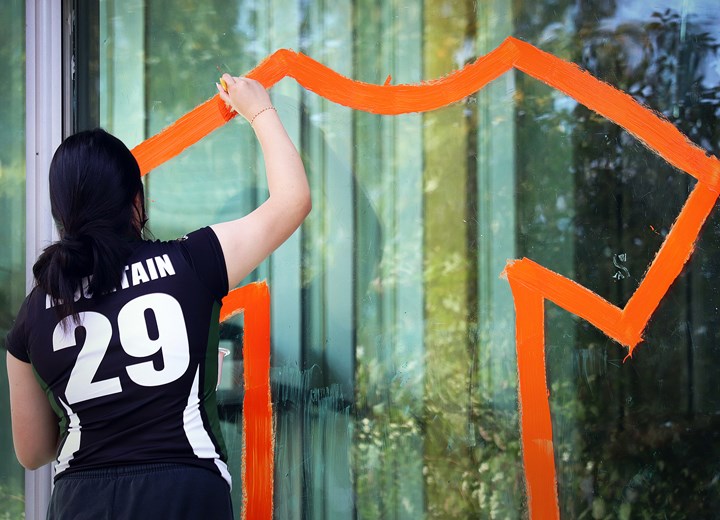As we approach Orange Shirt Day and the inaugural National Day for Truth and Reconciliation, former Senator Murray Sinclair’s views of the critical importance of education as the “key to reconciliation” resonate with me as an individual, as a mother, and as an elected school board trustee in Burnaby.
In the frank words of Sinclair, former Chair of the Truth and Reconciliation Commission: “Education has gotten us into this mess, and education will get us out.”
With the support of the district’s Indigenous Education team, school communities throughout the Burnaby School District are coming together in many ways – not just this week, but throughout the year – to build understanding and awareness and to be part of the learning and strengthening of the relationship between Indigenous and non-Indigenous peoples. The addition of National Day for Truth and Reconciliation will also provide time for everyone in our school communities to acknowledge and reflect.
Although there is no school September 30, it is much more than a day off. It is intended for the acknowledgement of the horrific legacy of residential schools, the intergenerational trauma and ongoing impact caused to residential school survivors, their families, and their communities.
For those of us who are settlers on unceded territory, this is also an opportunity to read or refamiliarize ourselves with the UN Declaration on the Rights of Indigenous Peoples and the Truth and Reconciliation Commission Report and the Calls to Action within it. If you have children and want to talk with them, you may find this resource useful that shares the Calls to Action in age-appropriate ways.
Additionally, it is an opportunity to learn more about staggering rates of violence again Indigenous Women, Girls and 2SLGBTQQIA people and systemic causes in the Murdered and Missing Indigenous Women and Girls (MMIWG) Report and Calls to Justice.
But reflection is not enough without action.
While Orange Shirt Day and the new National Day for Truth and Reconciliation provide an opportunity to ground the start of the school year in our shared history and develop a common understanding, Indigenous principles of learning are also integral day-to-day, as we move forward together in an ongoing journey of reconciliation. We are grateful to local Indigenous Elders for courageously and generously sharing their wisdom and experiences with students, staff and Trustees in many ways during the school year.
There are several different explorations this week throughout schools, such as classroom activities, examining resources about the history of residential schools, the healing journey of survivors and their families, and how Orange Shirt Day and the National Truth and Reconciliation Day came about. Part of the power of Orange Shirt Day that I have appreciated is in developing a deeper understanding of the lived experiences shared by Phyllis Webstad and committing to learning more about the truth many of us were not taught.
Staff development is also being supported throughout the year, such as a Truth and Reconciliation Speaker Series to support all staff with including authentic Indigenous perspectives and learnings in schools. Education plays a critical role in reconciliation and developing a culturally safe learning environment for youth and families.
There is also a moral imperative for institutions to consider the Truth and Reconciliation Commission Calls to Action and explore how we can further them in our work. I am proud of the work done along this path by the Burnaby Board of Education and district and school staff, but also recognize there is still so much to do.
As individuals, it’s probably fair to say that most of us have work to do on our own journeys towards reconciliation. In this regard, there is much to gain from listening to the words from Indigenous peoples and leaders with an empathetic heart, an openness to learn and a willingness to act.
As settlers, many have wondered how to recognize the National Day for Truth and Reconciliation in a meaningful way and support Indigenous community members. In my own journey, I have come across One Day’s Pay campaign, which invites all Canadians to meaningfully recognize this new federal statutory ‘holiday’ with more than reflection; it is an invitation to citizens, organizations, businesses, and communities to act by giving one day’s pay - or an amount of their choice - to Indigenous-led projects, movements, organizations and Nations. There are many local and national organizations that are doing important work to support residential school survivors and Indigenous communities. I would like to thank every Trustee on the Burnaby Board of Education for committing to donate to an Indigenous organization through the campaign and invite you to join us, if you can.
In the words of former Senator Sinclair: “The road we travel is equal in importance to the destination we seek. There are no shortcuts. When it comes to truth and reconciliation, we are forced to go the distance.”
I look forward to continuing this work with you all.
Jen Mezei is chair of the Burnaby Board of Education



